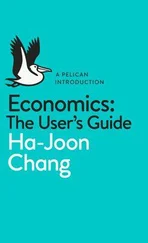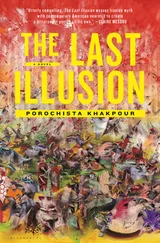Bruce Hood - The Self Illusion
Здесь есть возможность читать онлайн «Bruce Hood - The Self Illusion» весь текст электронной книги совершенно бесплатно (целиком полную версию без сокращений). В некоторых случаях можно слушать аудио, скачать через торрент в формате fb2 и присутствует краткое содержание. ISBN: , Издательство: Constable & Robinson, Жанр: Старинная литература, на английском языке. Описание произведения, (предисловие) а так же отзывы посетителей доступны на портале библиотеки ЛибКат.
- Название:The Self Illusion
- Автор:
- Издательство:Constable & Robinson
- Жанр:
- Год:неизвестен
- ISBN:9781780331379
- Рейтинг книги:5 / 5. Голосов: 1
-
Избранное:Добавить в избранное
- Отзывы:
-
Ваша оценка:
- 100
- 1
- 2
- 3
- 4
- 5
The Self Illusion: краткое содержание, описание и аннотация
Предлагаем к чтению аннотацию, описание, краткое содержание или предисловие (зависит от того, что написал сам автор книги «The Self Illusion»). Если вы не нашли необходимую информацию о книге — напишите в комментариях, мы постараемся отыскать её.
The Self Illusion — читать онлайн бесплатно полную книгу (весь текст) целиком
Ниже представлен текст книги, разбитый по страницам. Система сохранения места последней прочитанной страницы, позволяет с удобством читать онлайн бесплатно книгу «The Self Illusion», без необходимости каждый раз заново искать на чём Вы остановились. Поставьте закладку, и сможете в любой момент перейти на страницу, на которой закончили чтение.
Интервал:
Закладка:
Consider decision-making and the problem of analysis paralysis which occurs when there are too many choices. Much of that problem is solved for us on the Web. When was the last time you made a purchase online and ignored the ratings and comments left by others? When did you choose the third or fourth rated item on a list? I expect never. Whether it is choosing a book, film, hotel or microwave, we ignore the expert review and pay more attention to other users’ feedback, as we trust their experience as being more honest. They have no vested reason to lie. Everywhere we are invited on the Web to give our opinion with gladiatorial thumbs up or down to make pronouncements. According to the 2010 Neilson report mentioned earlier, up to one in five Web users regularly provides feedback on movies, books, television, music, services and consumer products. The collective experience of multiple users produces a consensus of opinion that shapes our decisions. Of course, you are the one making the choice, but it is a decision based on what others think.
This hive mind process is not flawless, however, as we tend to follow the herd mentality as evidenced by stampeding, but this compliance effect is much reduced on the Web. There is more honesty and dissent when we can remain anonymous online. Of course, there are always those who attempt to subvert the process with false recommendations and condemnations, but they are eventually rumbled with time. Last year there was an almighty hullabaloo in academia when eminent British historian, Orlando Figes, was accused of trashing other historian’s books on Amazon in the guise of an anonymous reviewer who simply called themselves ‘Historian’. Figes threatened to take legal action only to discover to his embarrassment that it was his own wife who had been writing the reviews to discredit her husband’s competition. 23Some would call that charming wifely support.
With all its benefits, the spread of the Web will be relentless. Over the next few years, accessing the Web will no doubt improve in ease, efficiency, speed and volume as platforms increase our ability to interact with each other. We may even one day make the unsettling transition of being integrated to the Web through biologically compatible interfaces, but the basic fundamental change that is most important to human civilization is that, in the West, we are all now potentially connected to each other. We can benefit from the wisdom of the crowd – the collective power of billions of brains. We have become the human equivalent of the Borg – the science fiction race of cyborgs from the Star Trek series who are all simultaneously interconnected. But we are not drones. We are independent autonomous individuals – or at least that’s what we think.
Mining the Mountain of Data
The march of the Web may be relentless but there is a big problem with it – literally. Natural selection tells us that when something increases in size it becomes inefficient. In the case of the Web, it is becoming too big – too unwieldy. Cisco Systems, the worldwide leader in networking, estimates how much data are generated and stored on the Web. According to their Chief Futurist, Dave Evans, one of the guys who plans the future strategy of the company, ‘Humans generated more data in 2009 than in the previous 5,000 years combined.’ 24With numbers like that, you might as well say the whole history of humankind. There is simply too much information out there to process. Most of it is junk – nuggets of gossip or titillation. As social media scientist danah boyd (she avoids capitalizing her name for some reason) has commented, ‘If we’re not careful, we’re going to develop the psychological equivalent of obesity. We’ll find ourselves consuming content that is least beneficial for ourselves or society as a whole.’ 25Much of what is on the Web is the equivalent of information junk food so search engines like Google sift the knowledge for the relevant information using clever modelling algorithms. Whenever we look for information, search engines analyse Web pages that have been viewed by other users seeking similar information and then rank the most relevant pages for review. It harnesses the power of the crowd to establish what we are looking for. This is wonderful. We can use the collective knowledge of others to mine through the impossible mountain of data to filter out what is not relevant to us.
The problem is that filtering excludes information. Every time we surf the Web, the search engines are recording what we do and what information we provide about our selves. It’s not evil. It’s not spying or an attempt to control our behaviour. The machines are simply trying to provide us with the most relevant information. However, Eli Pariser thinks this is a big problem. In his book, The Filter Bubble: What the Internet Is Hiding from You , he explains why search engines are potentially dangerous. 26Try this out for your self. Log on to Google and search for information about ‘Egypt’. Then call up a relative or friend in a different part of the country and ask him or her to do exactly the same thing. What Eli noted was that his friends received totally different lists of links. 27This difference is important because most people only look at the first page of links. In other words, they are not being allowed to see the full picture.
The reason for this discrepancy is that Google produces a personalized search result tailored for each user by using a filter. According to an unknown engineer from Google to whom Pariser spoke, the filter is based on a profile created from fifty-seven variables known about the user. (One wonders if the engineer was pulling Eli’s leg given the famous Heinz marketing ploy of fifty-seven varieties!) Eli noted how personalization was distorting the sorts of information that were being retrieved for him. For example, in an attempt to broaden his view on issues, Eli had deliberately followed Conservatives on his Facebook account even though he mostly had Liberal friends. However, after a while he noticed that the Facebook software was deliberately filtering out the postings from the Conservatives because these were deemed less relevant than the majority of his Liberal friends. Filtering software was encapsulating him inside a bubble of ignorance about contrasting views. This was the filter bubble.
Birds of a Feather
The vision of being connected to everyone on the Web to get a broad perspective on life is false. The software that is necessary for sifting through the impossible volumes of information is only showing us what it thinks we want to see. But we can’t blame the software. In real life, we also filter whom we pay attention to. People tend to social network with like-minded individuals who share the same values and opinions and reciprocate communications. We tend to befriend those who are most like us. We tend to read the same newspapers, like the same TV shows and enjoy the same pastimes. This homophily may lead to increased group cohesion but it also isolates us from other groups who share different values. In other words, it fosters increasing polarization. For example, in one study on attitudes about global warming, Republicans shifted from 49 per cent who believed the planet was warming up in 2001 to 29 per cent in 2010. In contrast, Democrats increased from 60 per cent to 70 per cent who believed it was a problem over the same period. 28It was if they were living on different planets.
One might think that the Web should counter this tendency of homophily and broaden our minds to different viewpoints. Indeed, Twitter activity encourages total strangers to become connected. If your followers like or dislike what they hear, they can comment or communicate by ‘mentioning’ you in an open post. That way you can tell whether anyone is paying any attention to you. Twitter users ‘retweet’ messages and links they like. It’s like saying, ‘Hey everybody, look at what this person over here is saying,’ thereby spreading the influence from someone they follow to other users not directly connected to them. If you say something influential it can spread more rapidly across the ‘Twittersphere’ than conventional channels. This is how Twitter users were made aware of the top secret US assault on Osama Bin Laden’s complex as it was happening in May 2011: one Twitter user, Sohaib Athar a.k.a. @reallyvirtual, who lived near Bin Laden, live-tweeted the raid without realizing what was going on. He later tweeted, ‘Uh oh, now I’m the guy who live-blogged the Osama raid without knowing it.’ Prior to the raid, Sohaib had 750 people following him. After the raid, he had over 90,000. No wonder Twitter makes surfing blogs and the Web look boring and long-winded. You don’t even have to be at a computer terminal as these social networking sites are now all accessible on mobile phones. Twitter is the crack cocaine of social networking.
Читать дальшеИнтервал:
Закладка:
Похожие книги на «The Self Illusion»
Представляем Вашему вниманию похожие книги на «The Self Illusion» списком для выбора. Мы отобрали схожую по названию и смыслу литературу в надежде предоставить читателям больше вариантов отыскать новые, интересные, ещё непрочитанные произведения.
Обсуждение, отзывы о книге «The Self Illusion» и просто собственные мнения читателей. Оставьте ваши комментарии, напишите, что Вы думаете о произведении, его смысле или главных героях. Укажите что конкретно понравилось, а что нет, и почему Вы так считаете.












